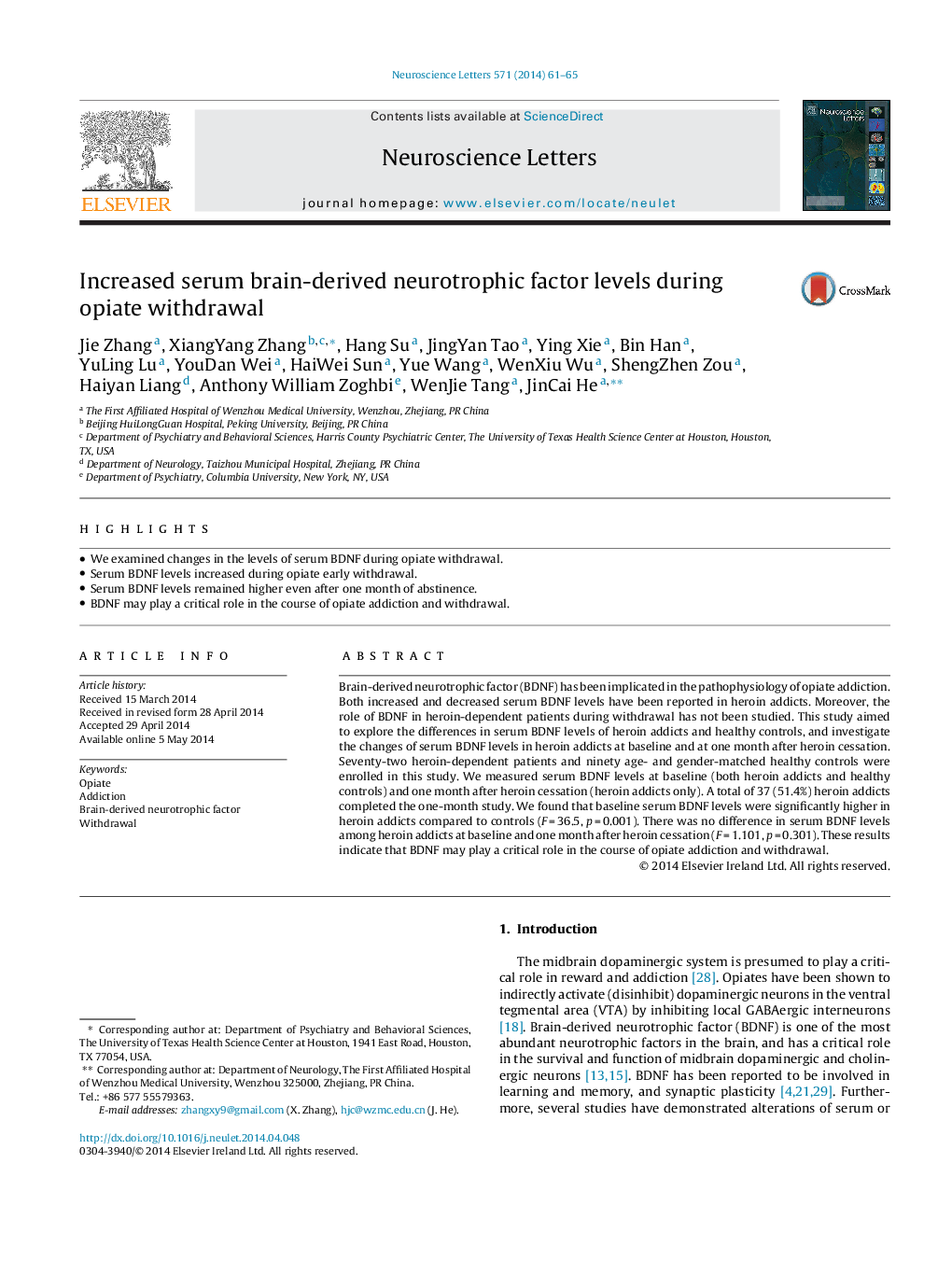| Article ID | Journal | Published Year | Pages | File Type |
|---|---|---|---|---|
| 6281811 | Neuroscience Letters | 2014 | 5 Pages |
â¢We examined changes in the levels of serum BDNF during opiate withdrawal.â¢Serum BDNF levels increased during opiate early withdrawal.â¢Serum BDNF levels remained higher even after one month of abstinence.â¢BDNF may play a critical role in the course of opiate addiction and withdrawal.
Brain-derived neurotrophic factor (BDNF) has been implicated in the pathophysiology of opiate addiction. Both increased and decreased serum BDNF levels have been reported in heroin addicts. Moreover, the role of BDNF in heroin-dependent patients during withdrawal has not been studied. This study aimed to explore the differences in serum BDNF levels of heroin addicts and healthy controls, and investigate the changes of serum BDNF levels in heroin addicts at baseline and at one month after heroin cessation. Seventy-two heroin-dependent patients and ninety age- and gender-matched healthy controls were enrolled in this study. We measured serum BDNF levels at baseline (both heroin addicts and healthy controls) and one month after heroin cessation (heroin addicts only). A total of 37 (51.4%) heroin addicts completed the one-month study. We found that baseline serum BDNF levels were significantly higher in heroin addicts compared to controls (F = 36.5, p = 0.001). There was no difference in serum BDNF levels among heroin addicts at baseline and one month after heroin cessation (F = 1.101, p = 0.301). These results indicate that BDNF may play a critical role in the course of opiate addiction and withdrawal.
